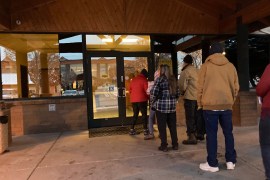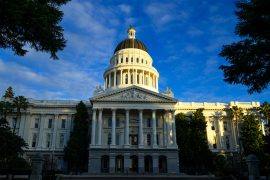CDC Drops ‘Known Epidemics’ Such as HIV/AIDS From Model Legislation for Dealing With Public Health Emergencies
After protests from HIV/AIDS advocates and civil libertarians, the CDC has dropped "known epidemics" such as HIV/AIDS from the list of possible emergencies in a revised version of model legislation that would give governors the power to order medical examinations and quarantines during times of declared public health emergency, the Wall Street Journal reports. Lawrence Gostin, director of the Center for Law and the Public's Health at Georgetown University, and colleagues drew up the first draft of the Model State Emergency Health Powers Act in October at the request of CDC officials who were concerned that states did not have comprehensive plans for "cop[ing] with a serious bioterrorism attack." The legislation is intended to be debated and adopted by individual state legislatures. The first draft -- which gave governors the power to declare a public health emergency when there was an "imminent" biological threat that could kill or seriously disable people and to order quarantines, commandeer hospitals, control medical and food supplies and isolate those who did not comply with medical examinations or treatment orders -- was "quickly endorsed" by HHS Secretary Tommy Thompson, and several states began taking steps to enact their own versions. However, that draft was problematic for AIDS activists who were concerned that a clause including "epidemic diseases" in the definition of a public health emergency would allow officials to isolate people with HIV infection (Lueck, Wall Street Journal, 1/7). San Francisco activists Michael Petrelis and David Pasquarelli on Dec. 5 took out a full-page ad in the San Francisco Examiner to bring attention to the model legislation -- a version of which is expected to be introduced this month in the California Legislature by Assembly member Keith Richman (D). They claimed the bill would "give health officials sweeping powers to cage citizens suspected of harboring disease, confiscate and destroy their property, monitor patients and publicize their health histories and legally force medical testing and treatment without a court order" (Kaiser Daily HIV/AIDS Report, 12/6/01). However, the model law was revised last month to "narro[w] the definition of a public health emergency so it doesn't apply to known epidemics such as AIDS," the Journal reports. The new version also drops misdemeanor penalties for those who refuse medical treatment and allows people to opt out of treatment for "religious or other reasons." However, people may still be subject to isolation if they refuse to comply. Up to a dozen states, including California, Massachusetts and Minnesota, are expected to consider legislation based on the model law this year (Wall Street Journal, 1/7).
This is part of the Morning Briefing, a summary of health policy coverage from major news organizations. Sign up for an email subscription.





